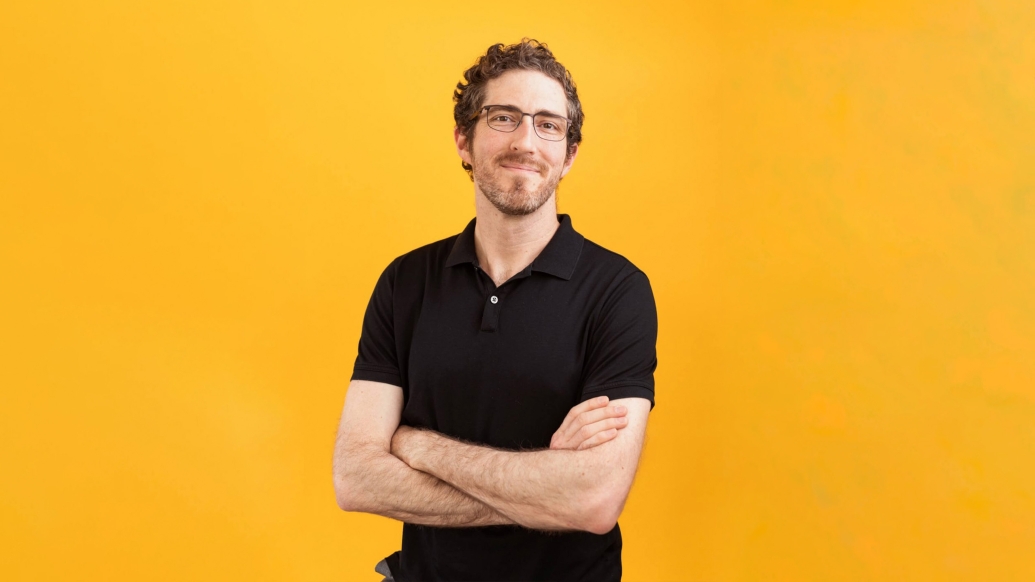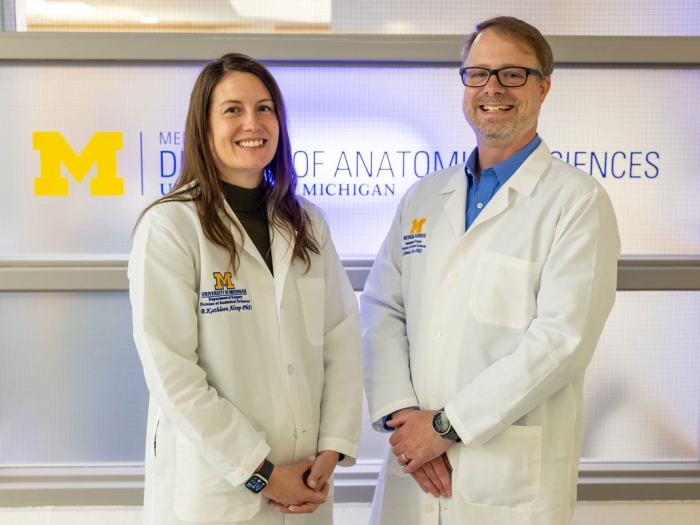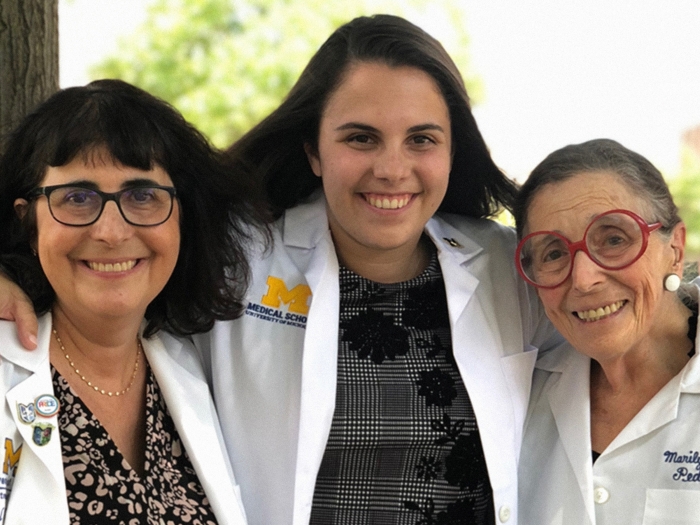A social media stand-out offers advice to medical graduates
1:38 PM
Author |

Will Flanary, M.D., is an ophthalmologist and beloved comedian who is better known as “Dr. Glaucomflecken” in the medical community.
The social media personality regularly shares medical-themed comedy shorts to an audience of over 5 million across his various channels.
Flanary’s humor has been shaped by the challenges of medical training, as well as his own experiences as a patient.
“I’m a two-time testicular cancer survivor and a very lucky survivor of cardiac arrest,” said Flanary. “While I initially developed comedic content as a creative outlet to better deal with my own health challenges, it eventually evolved over time and grew into something I never imagined.”
Flanary incorporates medical-themed satire targeting a range of subjects into his social media content and often encourages medical students to “embrace the humor in everyday life.”
Here he shares a few thoughts for medical school graduates as they embrace the future as physicians.
What inspired you to pursue medicine?
I first thought about pursuing medicine in high school while taking AP biology. I had a wonderful teacher and did really well in the class.
Even though my high school brain was underdeveloped, I knew that I eventually needed to lock myself into a career and something related to biology sounded great.
I started exploring what was out there – careerwise – and there seemed to be two options: doing research or going to medical school.
I later learned that you can do both, of course, but there was always a dichotomy in my mind. I wasn’t a big fan of research, so I started the medical school track.
Sadly, I don’t have a really inspiring story about how I landed in medicine, as you can see, but I’m glad I pursued it.
At one point, I even thought about pursuing standup comedy as a career.
When I was a senior in high school, I’d go to this comedy club in Houston and do open mics. But even as I got better at it, I’d see these talented comics in their 30s, 40s and 50s, struggling to make it big in the field. I knew early on just how hard it is to make it big in comedy, and I think this scared me a little bit.
In addition to my social media role, I’m now a private practice comprehensive ophthalmologist, and I love the work. It’s extremely rewarding.
Given your expertise in social media and connecting with the medical community, how important is communication in medicine?
I think people often forget that communication is the foundation of everything that we do.
As physicians, it helps us build relationships with our patients and effective communication always leads to better care.
As you can imagine, I’ve written a lot of satire in my background in comedy and comedy writing, and it has helped me become a better communicator.
With comedy, there’s no easier way to develop a connection with another person, be it a patient or otherwise, than sharing a laugh.
With the way social media is evolving these days, I often tell my trainees that it’s important for physicians to have representation on these channels as advocates and sources of good, factual information.
So, using your voice as a physician is hugely important on social media and otherwise.
The communication part of medicine almost always starts with our patients, and it extends to doing things that make our profession better.
When I say this, I mean understanding our patients and advocating for them in the right ways. Humor is a brilliant way of doing this, but you don’t always have to be funny, per se.
You have the ability to change lives by simply being a clear communicator with empathy and understanding.
There’s so much complexity to the health care system and with medicine, in general, so being available to help others understand it all is huge.
Medicine is such a multidisciplinary field, and while I make most of my content for other physicians, the messages and lessons are hidden behind the jokes and can be appreciated by people who are not in medicine at all.
I think this approach to communication works because we’re all just trying to help one another, and we have more in common than we think.
What advice do you have for aspiring physicians?
I’d like to remind them of how important it is to take care of themselves.
Medicine can eat you up and spit you out, and it can be all-consuming. It can be your life.
But guess what? It’s OK for it not to be your life, too!
It’s healthy to have something else you can do to forget about medicine for a while.
Also, we need our new physicians to help make this whole thing better. It’s a challenge to take something that has problems you didn’t create and find ways to fix them.
But that’s medicine.
My hope is that I can help young people understand and truly recognize the importance of creating change in health care. And remind them that this change can happen even though it may feel overwhelming at times.
Always, always, always remain hopeful.
And last but not least: Who's your favorite comedian?
Well, it often changes, but right now it’s Nate Bargatze. I love his delivery.
I grew up watching David Letterman and I still love him so much as a comedian. A lot of my delivery when it comes to comedy was molded by Letterman’s dry, witty humor. He was definitely a huge influence on me as I grew comedically.
Flanary will provide the University of Michigan Medical School commencement speech on May 10 at Hill Auditorium. This is a ticketed event but a free livestream will be available for viewing during or after the event, which begins at 4 p.m. ET.
Sign up for Health Lab newsletters today. Get medical tips from top experts and learn about new scientific discoveries every week by subscribing to Health Lab’s two newsletters, Health & Wellness and Research & Innovation.
Sign up for the Health Lab Podcast: Add us on Spotify, Apple Podcasts or wherever you get you listen to your favorite shows.

Explore a variety of health care news & stories by visiting the Health Lab home page for more articles.

Department of Communication at Michigan Medicine
Want top health & research news weekly? Sign up for Health Lab’s newsletters today!





